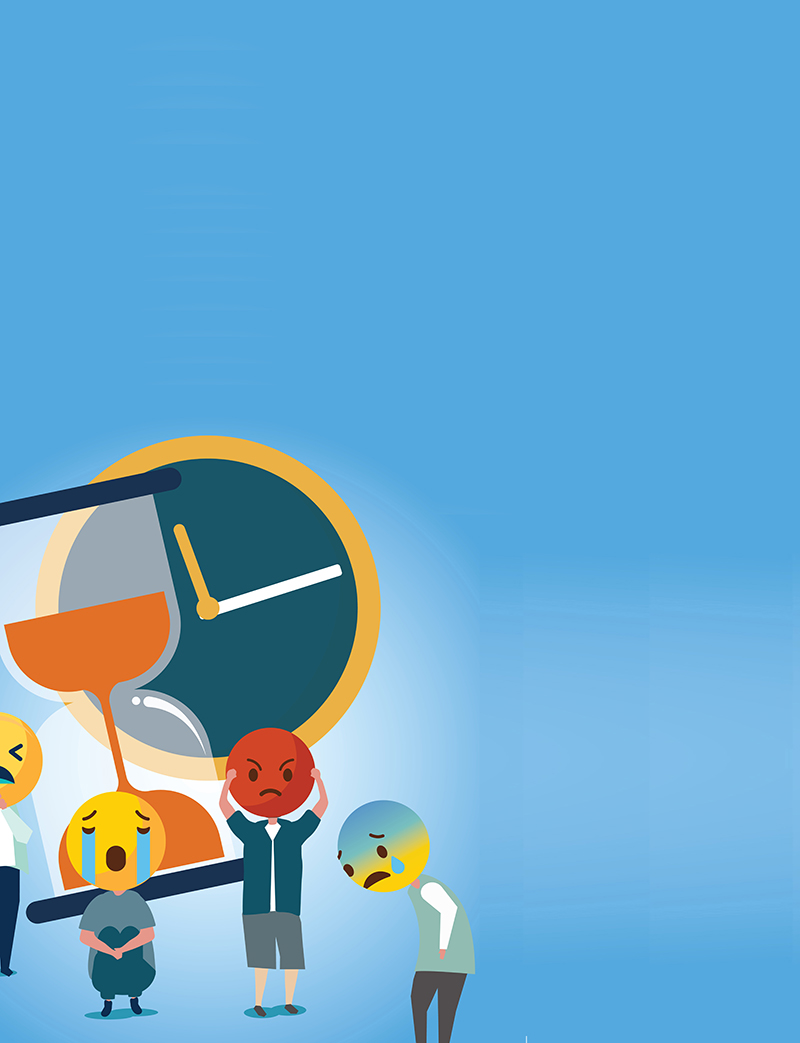Leisurely Treats
The alarming increase in people who are unemployed and are falling into the addiction trap is high.

“An idle mind is the Devil’s workshop” - Haven’t we heard this proverb at least once in our life? I know I have. We may have only given it a passing thought because most of us are among the people who have been busy and employed. But the Nepal Labor Force Survey places the unemployment rate in Nepal at 11.4%, in 2017-18. Among this, 640,000 of the unemployed are in urban areas, while 268,000 are in rural areas.
Yes the numbers are quite alarming. Unemployment also means that they have plenty of time to sit brooding in their room. When one has too much time and doesn’t have guidance or a goal the chances are high that he or she will fall astray. And this could very well be one of the leading causes for the increase in number of addicts.
“Addiction in its most basic definition is a behavior. A person who is addicted to something feels like completing that action is a reward. They feel discomfort every time the cycle is broken and hence are stuck in a loop,” says Dambar Bhatta, a Psychologist at Bhatta Foundation. .
Addiction creates a vicious circle. At the beginning of it all, it seems to be harmless and free. But once you are hooked to the point of addiction a heavy cost comes attached to it.
There are a lot of reasons why people turn to addiction. Stress, frustration, inability to cope with pressure, the difficult environment that they grow up in, peer pressure are some of the reasons people turn addiction. Dr. Bhatta stresses on the importance of a loving family environment and family support as some of the best ways to overcome addiction.
Unemployment contains within it a lot of factors that lead to addiction. Stress, peer pressure and an absence of purpose are some of them. Professor Jungeun Olivia Lee found in her studies that people also turn to addiction because of their inability to cope with their frustration.
Addiction and substance abuse are usually seen as ways to escape from the worldly pressures. But what people fail to see is that addiction slowly diminishes our logical self and lets the impulse take over. It works itself from ground up, i.e. from our behavior and completely takes over us. Letting go of addiction and building yourself can be pretty challenging with the passage.
With new age, new forms and reasons for addiction have arisen. Besides the traditional forms of addiction, i.e. substance or any other kind of abuse, there is now -- screen addiction. While among the older population the major form of addiction is on substance abuse, with the younger crowd it is screen addiction.
Dr. Bhatta also states that he gets more and more family members who are concerned with their loved one’s increasing presence in the digital world as opposed to the one they are living in. Social media, games and the internet have taken over their lives. People in general still do not consider this an addiction, but the need to stay active on social media has taken over our lives, especially of the young people, like a slow poison.
Among the working parents, screens are an easier alternative to get children under control with a few taps - be it on the remote control or the mobile or an iPad. Getting their favorite cartoon show on TV or mobile is now the fastest way to keep those fighting and screaming children on their side. This is a way parents are unknowingly sowing the seeds of screen addiction in their children very early on. Besides this, parents giving children their personal devices early on is another way of pushing children toward excessive screens use.
There is always light at the end of the tunnel. An addicted person doesn’t usually want help but help needs to be given nonetheless. The first thing that can be done to help an addicted person is making them aware about their addiction. Awareness coupled with the will to fight goes a long way in this fight. The next step is providing positive energy to the people who have fallen prey to any forms of addiction. It is the first step that the family needs to take. Your help can sometime be taken as overbearing if you try too hard, so be mindful as to not to cross that line.


